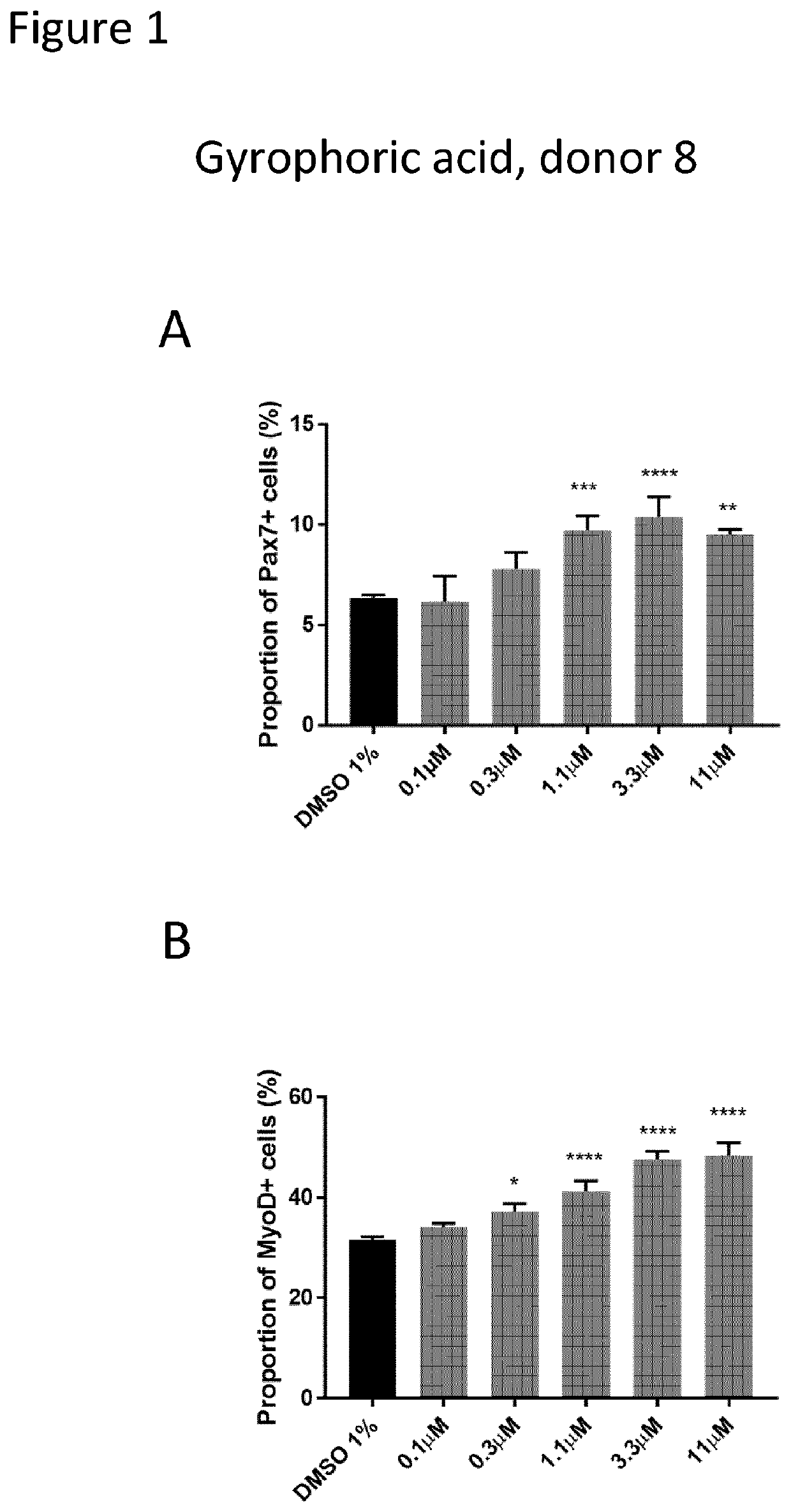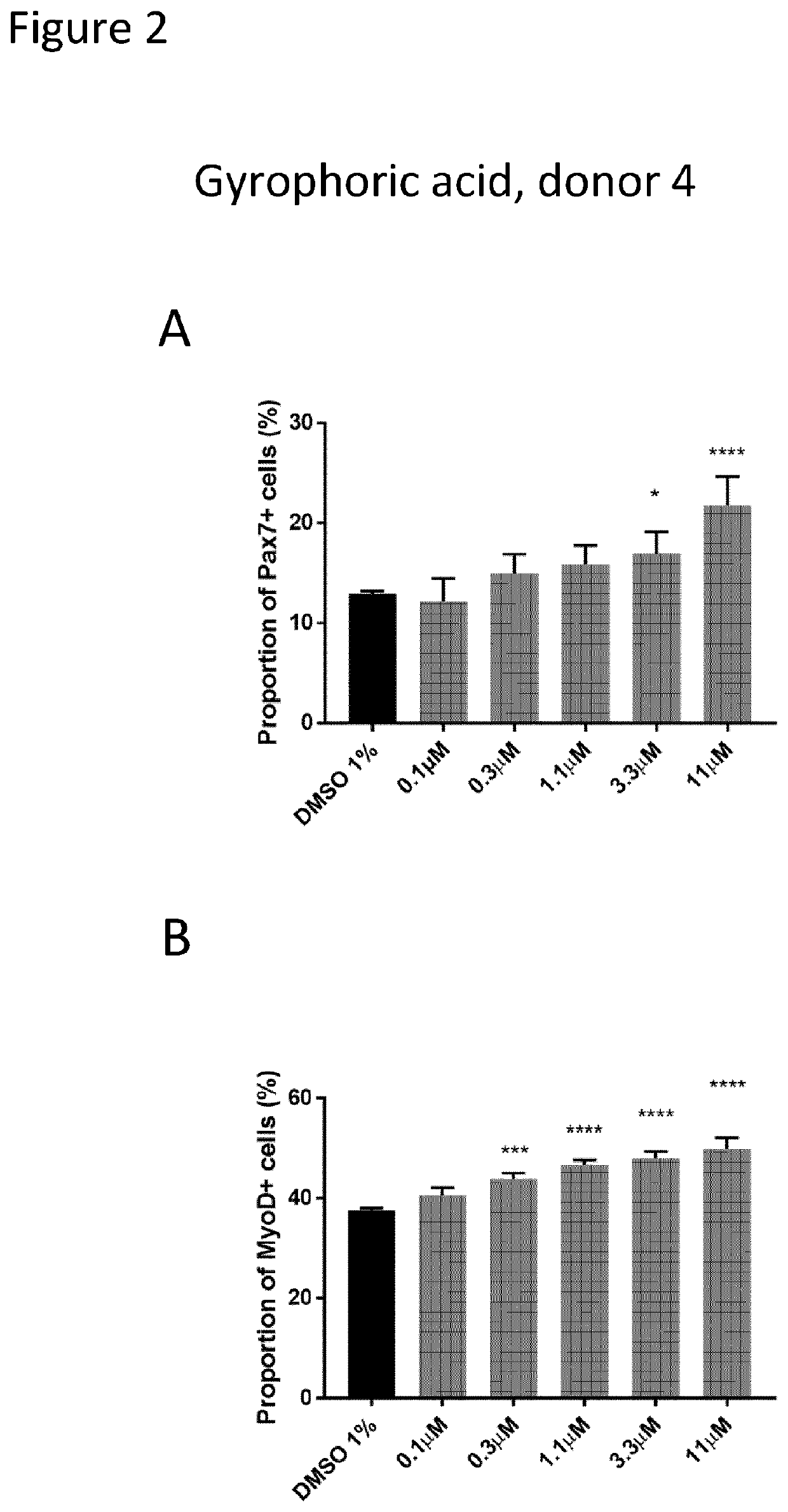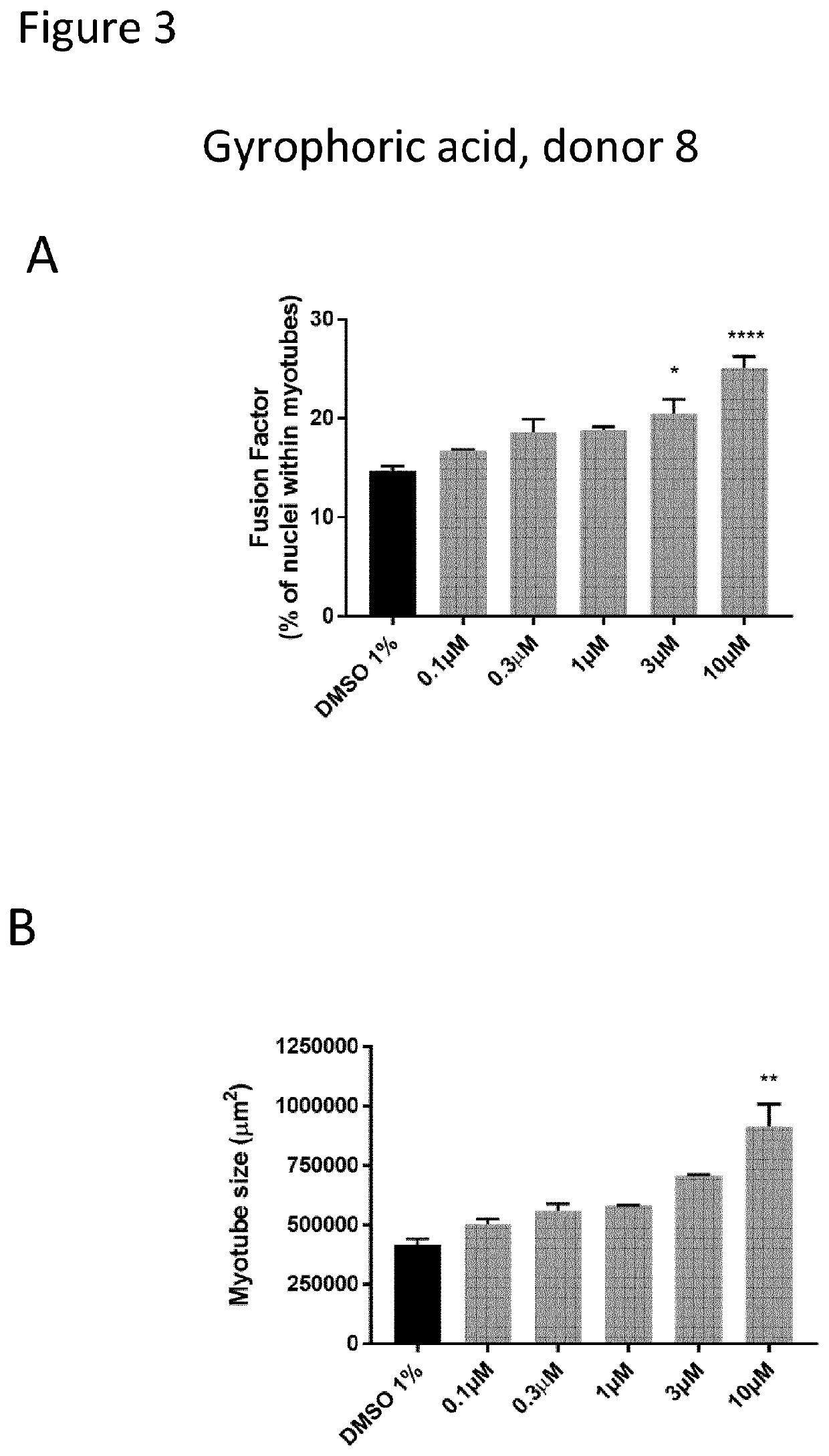Depside trimeric compounds for skeletal muscle modulation
a technology of skeletal muscle and depside trimeric compounds, which is applied in the direction of muscular disorders, drug compositions, animal husbandry, etc., can solve the problems that experimental therapies which have previously included myoblast transplantation have not been entirely successful, and achieve the effects of improving skeletal muscle regeneration, modulating skeletal muscle function, and improving muscle repair
- Summary
- Abstract
- Description
- Claims
- Application Information
AI Technical Summary
Benefits of technology
Problems solved by technology
Method used
Image
Examples
example 1
of Compounds Modulating Muscle Stem Cells
[0210]Selection of Human Skeletal Muscle Myoblasts
[0211]The inventors developed a high content screening to test in vitro compounds on human primary adult muscle cells. Human Skeletal Muscle Myoblasts (HSMM) were purchased from Lonza (https: / / bioscience.lonza.com). These cells were isolated from the upper arm or leg muscle tissue of normal donors and used after the second passage. Several donors were tested to ensure cell viability and purity before selecting the final donors, which are a 36-year-old Caucasian female (Donor 8) and a 20-year-old Caucasian female (Donor 4).
[0212]Assay for Muscle Stem Cell Commitment
[0213]The primary screening assay was based on the high content detection of two important myogenic regulatory factors (Pax7 and MyoD) by immunofluorescence. Pax7 and MyoD are the major hallmarks of muscle stem cell stemness and commitment and can be used to monitor muscle stem cell progeny. In particular, Pax7 marks early amplificat...
example 2
Differentiation Assays
[0216]Human primary myoblasts from two different donors (donor 8 & donor 4) were seeded in 384 well plates at a density of 3′000 cells per well in skeletal muscle growth medium (SKM-M, AMSbio). After one day, the differentiation is induced by a medium change. For treatment, compounds were directly added to the myoblast cultures for 96 hours. Myotubes were stained for TroponinT expression using antibodies directed against TroponinT and counterstained with Hoechst 33342 to visualize cell nuclei. Image acquisition was performed using the ImageXpress (Molecular Devices) platform. Custom module analysis based on Multi-Wavelength Cell Scoring of the MetaXpress software was used for quantification. For each condition, the number of cells was calculated to control compound toxicity and myotubes are characterized by several readouts in order to evaluate the differentiation level and their morphology. This is shown in FIGS. 3 and 4 for gyrophoric acid.
example 3
Compounds as Non-Oncogenic
[0217]The safety of the compounds were tested in two different human cancer cell lines purchased from ATCC. FIG. 5A cell line PC-3 was of prostate / adenocarcinoma from a Caucasian male, aged 62 years and FIG. 5B cell line PANC-1 was from a pancreatic duct epitheloid carcinoma from a Caucasian male, aged 56 years. Each of the cell lines were seeded in 384 well plates at low density in their growth medium. The day after, the growth medium was removed and replaced by serum free medium. For treatment, compounds (at 3 μM final concentration) were directly added to the cell cultures 16 hours after initial plating. Cultures were then grown for 96 hours. Cells were stained Hoeschst 33342 to visualize and count cell nuclei. Custom module analysis based on Cell Scoring of the MetaXpress software was used for quantification. For each condition, the total number of cells was determined to evaluate the cell amplification. These results indicate the safety of the compound...
PUM
| Property | Measurement | Unit |
|---|---|---|
| wt % | aaaaa | aaaaa |
| body weight | aaaaa | aaaaa |
| body weight | aaaaa | aaaaa |
Abstract
Description
Claims
Application Information
 Login to View More
Login to View More - R&D
- Intellectual Property
- Life Sciences
- Materials
- Tech Scout
- Unparalleled Data Quality
- Higher Quality Content
- 60% Fewer Hallucinations
Browse by: Latest US Patents, China's latest patents, Technical Efficacy Thesaurus, Application Domain, Technology Topic, Popular Technical Reports.
© 2025 PatSnap. All rights reserved.Legal|Privacy policy|Modern Slavery Act Transparency Statement|Sitemap|About US| Contact US: help@patsnap.com



